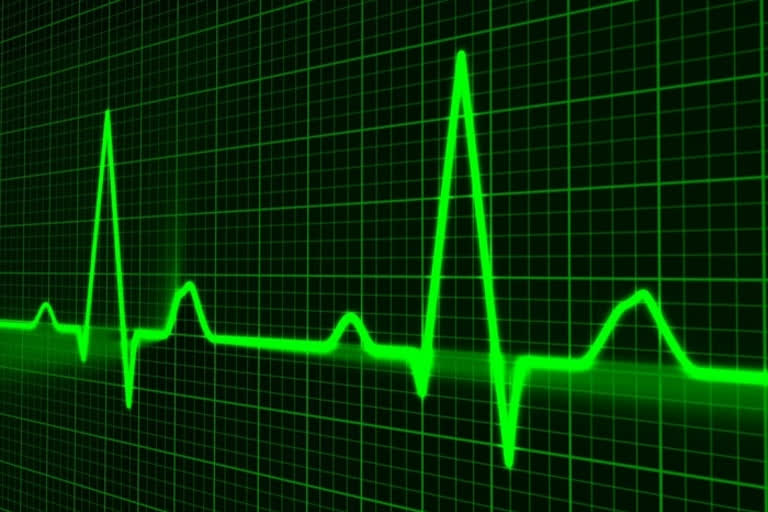Jerusalem: A simple electrocardiogram (ECG) can identify hospitalised COVID-19 patients at high risk of death who might need intensive management, according to a study. The research shows that a prolonged QT interval on the ECG was an independent risk factor for both heart injury and one-year mortality. The QT interval refers to the electrical signal from the moment the ventricles or heart chambers contract until they finish relaxing and is measured in milliseconds. Patients with a prolonged QT interval are at increased risk for life-threatening arrhythmias -- heart rhythm disorders -- and cardiac arrest.
"An ECG is an inexpensive, non-invasive, easily attainable and widely available test applied in nearly all hospitalised patients," said study lead author Ariel Banai of Tel Aviv Sourasky Medical Center, Israel. "Our study suggests that a simple ECG tracing performed upon admission may help healthcare professionals to triage patients with COVID-19 and identify those in need of intensive care," Banai said.
An ECG records electrical activity as it travels through the heart. The information is displayed as a graph which is divided into sections according to the location in the heart. The study, presented at EHRA 2022, a scientific congress of the European Society of Cardiology (ESC), examined the association between QT prolongation and long-term mortality in patients hospitalised with COVID-19.
Also read:Fitbit Sense gets ECG app functionality in US and Europe
It also evaluated the relationship between prolonged QT interval and myocardial injury, a condition in which cells in the heart die. The researchers studies 335 consecutive patients hospitalised with COVID-19. All of them had an ECG upon admission. Patients were deemed to have myocardial injury if they showed reduced function on an echocardiogram, which is an ultrasound of the heart, and had troponin in the bloodstream.
